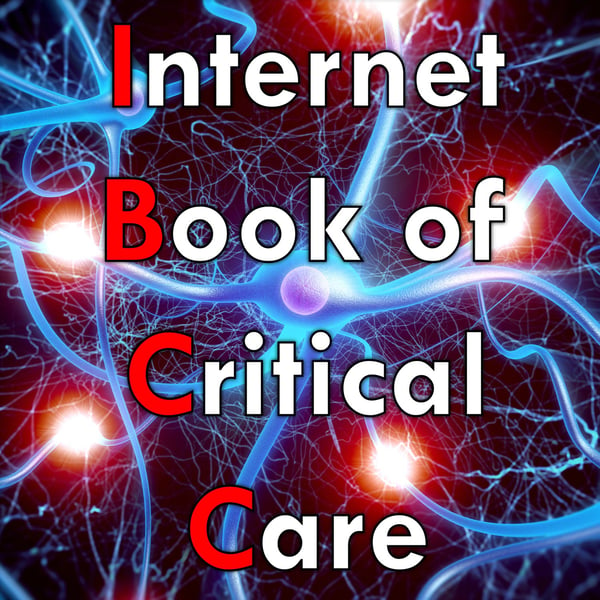IBCC Episode 100 - Wernicke encephalopathy
The Internet Book of Critical Care Podcast
Adam Thomas
5 • 714 Ratings
🗓️ 16 October 2020
⏱️ 21 minutes
🧾️ Download transcript
Summary
We've reached a milestone, 100 episodes! In this podcast, we cover ICU level thiamine deficiency, not just your white-whale of Wernicke encephalopathy. Come take a listen for dosing, clinical features and complications.
Transcript
Click on a timestamp to play from that location
| 0:00.0 | All right, so welcome back to the Internet Book of Critical Care podcast. I'm here with Adam |
| 0:09.3 | Thomas and we're going to talk about Warnakey encephalopathy. Josh, we were talking offline, but I think |
| 0:14.2 | we both agree that we cover up front for this like the shotgun approach and then we get lucky |
| 0:19.1 | probably most of the time. So I think it's really interesting to make us sit down and really think at length about what this is |
| 0:25.5 | and what are the implications for our patients. So we'll cover the clinical diagnosis, the workup and |
| 0:30.2 | treatment and all the things in between there. So let's go back to it because Josh, you are the |
| 0:35.0 | thiamine aluminy, shall we say? |
| 0:39.1 | Thymin goes around a lot. |
| 0:41.1 | And I'm all about this. |
| 0:43.3 | So we've talked about this in other posts. |
| 0:48.6 | Let's really come into perivate, lactate, and if that screws up, the citric acid cycle. |
| 0:51.4 | So what is the biochemistry here and why is it important? |
| 0:52.4 | It's pretty complicated. And we're not going to drag you through all of the ins and outs of the biochemistry, but thiamen is a co-factor for a lot of enzymes involved |
| 0:58.1 | in intermediary metabolism. So if you run out of thiamine, your tricyclic acid cycle basically |
| 1:02.6 | stops working. You accumulate a lactic. You can develop a lactic acidosis or hyperlactatemia if you |
| 1:08.4 | prefer that terminology. When in the brain, things like clutamate can accumulate and they can cause neurotoxicity. |
| 1:13.1 | So let's move on to the pharmacology of thymine in itself. |
| 1:16.2 | So if I have a normal diet versus a non-normal diet, how does this get into my body? |
| 1:21.1 | Yeah. |
| 1:21.3 | So generally, it's consumed through the gastrointestinal tract. |
| 1:24.1 | And absorption of thiamine is a little bit complicated. |
| 1:26.6 | There's probably an active and also |
... |
Please login to see the full transcript.
Disclaimer: The podcast and artwork embedded on this page are from Adam Thomas, and are the property of its owner and not affiliated with or endorsed by Tapesearch.
Generated transcripts are the property of Adam Thomas and are distributed freely under the Fair Use doctrine. Transcripts generated by Tapesearch are not guaranteed to be accurate.
Copyright © Tapesearch 2025.

